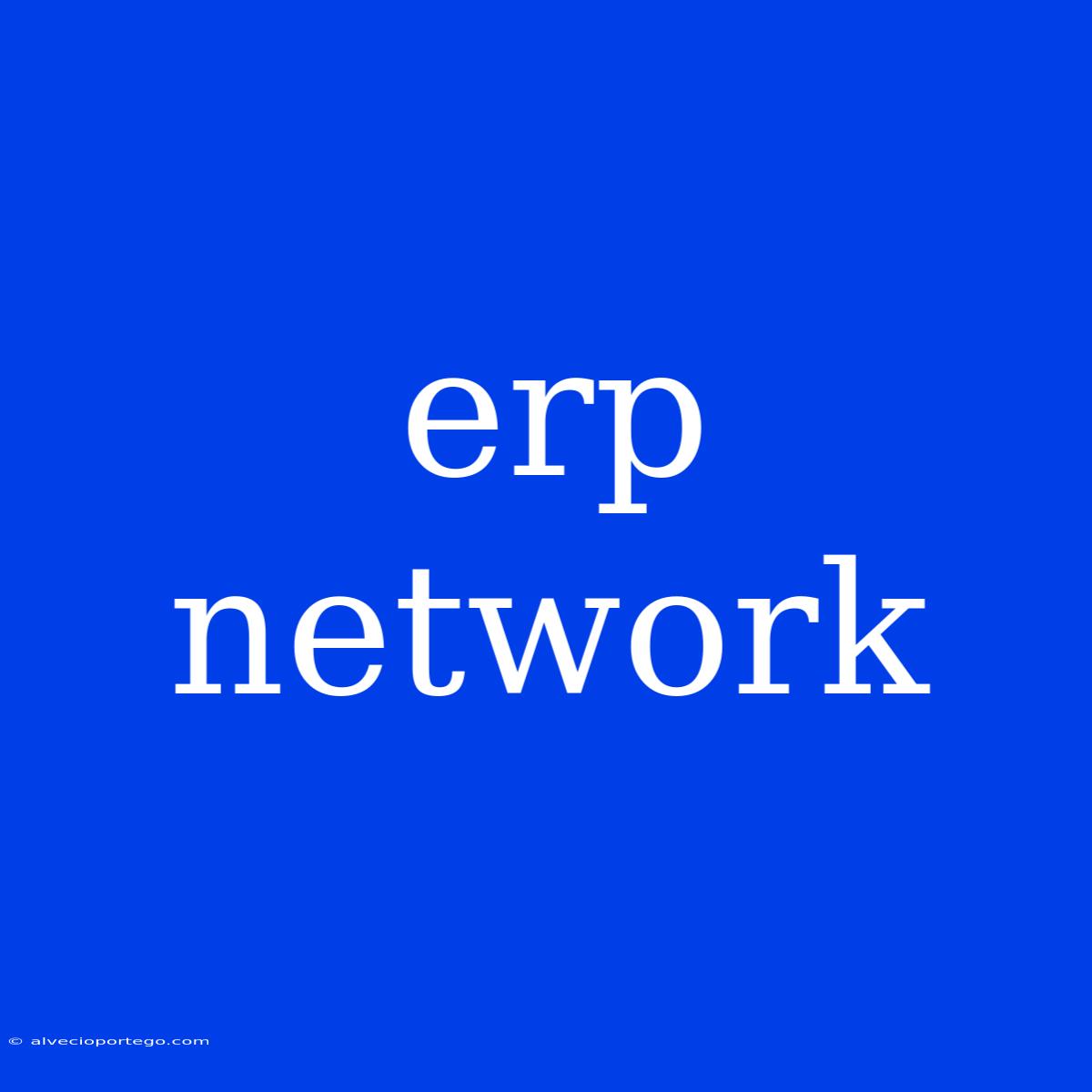What is an ERP Network?
An ERP network, also known as an Enterprise Resource Planning network, is a system that connects multiple ERP systems within an organization or across different organizations. It allows for seamless data exchange and communication between various ERP instances, enabling businesses to streamline operations, improve efficiency, and gain valuable insights across their entire network.
Benefits of an ERP Network
- Improved Collaboration: Facilitates better collaboration between departments, divisions, and even different companies within a supply chain. This enables efficient communication, task management, and information sharing.
- Centralized Data Access: Allows all connected ERP systems to access a shared pool of data, providing a single source of truth and eliminating data silos. This enables real-time visibility into critical information across the entire network.
- Enhanced Visibility: Offers a comprehensive view of the entire supply chain, including inventory levels, production schedules, customer orders, and financial transactions. This improved visibility helps identify bottlenecks, optimize processes, and make informed decisions.
- Increased Efficiency: Automates data exchange and integration, reducing manual processes, minimizing errors, and freeing up valuable time for strategic initiatives.
- Reduced Costs: Eliminates the need for separate systems and manual data entry, resulting in significant cost savings on software licenses, maintenance, and labor.
Types of ERP Networks
- Internal Networks: Connects multiple ERP systems within a single organization, such as different departments or subsidiaries.
- External Networks: Connects ERP systems across different organizations, such as suppliers, distributors, and customers.
- Cloud-based Networks: Leveraging cloud technology to enable secure and scalable connections between ERP systems, regardless of their location.
Key Features of an ERP Network
- Data Integration: Seamlessly integrates data from different ERP systems, ensuring consistent and accurate information across the network.
- Data Synchronization: Regularly updates data across the network to ensure that everyone has access to the latest information.
- Security: Implements robust security measures to protect sensitive data and ensure compliance with industry regulations.
- Scalability: Can be easily scaled to accommodate growing business needs and expanded network connections.
Implementing an ERP Network
- Identify Business Needs: Clearly define the goals and objectives for implementing an ERP network.
- Choose the Right Technology: Select the appropriate software and hardware solutions to support the network's functionality.
- Plan for Data Integration: Develop a plan to integrate data from different ERP systems, ensuring consistency and accuracy.
- Test and Implement: Conduct thorough testing to ensure that the network operates smoothly and meets all business requirements.
In Conclusion
An ERP network is a powerful tool for businesses looking to enhance collaboration, improve efficiency, and gain valuable insights across their operations. By leveraging the benefits of an integrated ERP network, organizations can streamline processes, reduce costs, and gain a competitive advantage in today's global marketplace.

